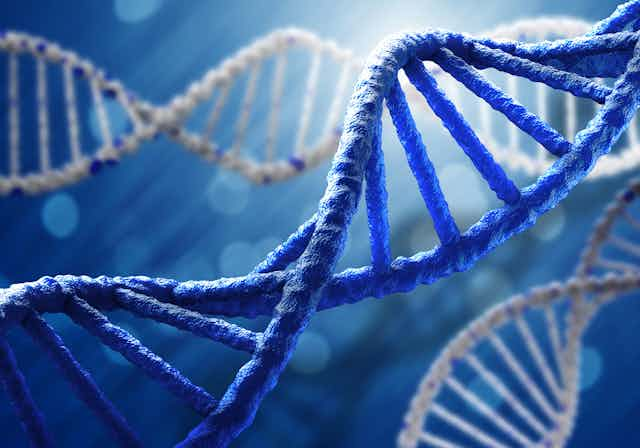I hope that the UK will vote to stay in Europe in June. But not because of intricate arguments pertaining to market economy or geopolitics which I do not really understand anyway. As economic predictions are refuted daily by both sides of the Brexit debate, perhaps we should also look for general guiding principles elsewhere. I suggest biology.
As a biologist, I make a working habit of marvelling at what surrounds us. We also often copy solutions from the natural world to solve modern-day problems: think aerodynamic designs, neural networks … and velcro. But there is one principle that is fundamental to life itself, and which is relevant to the current European debate. Since it is an argument steeped in about 4 billion years of proven effectiveness, I believe that it has gravitas. Call it the mother of all arguments. Literally.
Put simply, it is that the secret of life’s success is that of coming together, of aggregating. Several of those aggregations have been game-changers and it is because of all of them that we exist at all. It started probably about 4 billion years ago, when hitherto isolated molecules started to assemble spontaneously under the right conditions. Over (a very long) time they aggregated into increasingly stable constructs (nothing mysterious there: those that were less stable would not last as long) and replicated (a precursor to our current DNA). The next momentous change occurred when these molecules accumulated protective layers, and merged with other structures. This eventually became the modern cell.
The ultimate cooperative
Some cells then started to aggregate, forming coalitions in a sense. In some cases, these coalitions are temporary. In others, cells remain together: trees, birds and humans are obligate coalitions of cells that have formed identities of their own. The final major transition occurred when individuals themselves coalesced into groups. For some species, honey bees for example, being a society is the only way they can survive, and of course the human society is a recent example of the advantage of group living.
So a society is a coalition of individuals, who are themselves an alliance of cells, made up of a coalescence of structures, consisting of an aggregation of molecules. Each of these major coming-together events was revolutionary but it has withstood the test of time because it provides a selective advantage in the most competitive of environments.
But our environment is no longer confined to the pond of our ancestors, to our village, to our region, or even to our country. Our issues are now planet-wide and it follows, naturally I would say, that a union of nations can resolve issues that are beyond the reach of single States. Nations need to continue this trajectory of agglomeration for all our sakes.

But what about the downside of being part of a parliament of nations? How worried should the UK be about losing sovereignty within the EU machine?
A parliament of despot genes
Well, what do you think this describes: “ … countless departments, chambers, committees, and forgotten archives … secret rebels, idlers and intriguers, a bouillon of red tape seething with nepotism, deceit and obstinacy”?
The European parliament, perhaps, teeming with petty bureaucrats? As it turns out, life has had several billion years of experience on this topic. In fact, the above quote is describing the world inside our very own cells. Indeed the age-old conflict between the individual and the collective, and its solution, is in our DNA. And for once this overused expression is accurate.
One of the most exciting discoveries of modern biology in my view is that our genome is not only the site of cooperation, it is the raging theatre of competition, self-promotion and queue jumping. Like members of some boardrooms who jostle for promotion, DNA can exhibit signs of competitive, disruptive and sometimes damaging behaviour only tempered by the need to avoid bringing the whole edifice down.
We now know of a whole gallery of genome rogues. An extreme example (although so far not found in human DNA) are genes that influence the probability of being passed on to the next generation by destroying other cells that do not have copies of themselves, via a form of chemical welfare. They are themselves protected by an antidote produced by another gene, in a kind of genetic alliance that favours those two genes at the expense of others, and sometimes of the organism that hosts them. Less disruptive but still considered parasitic are “jumping genes”. They have the ability to duplicate, selfishly accumulating in the genome just because they can (and now make up as much as about 40% of the human genome) and move about to new positions, sometimes inserting themselves within other genes, thereby disrupting their useful functions.
But this also demonstrates how “a parliament of genes” (sometimes less kindly referred to as a “parliament of despots”) is able to build exquisitely intricate and harmonious features (our body for example) on a bedrock of individual interests. And it does not stop there as this is a situation found at all levels of organisations. Genes within our chromosomes, chromosomes within our cells, cells within individuals and individuals within groups have clearly managed, sometimes noisily and messily but successfully, to work together to achieve a common goal … and changed life on earth.
If molecules, cells and slime mould find alliances worth the effort and can make them work, should not countries be able to also? It may be messy at times. But that’s what life is. And the reason for its success may well be the only hard fact in the Brexit debate that we can all agree on.

